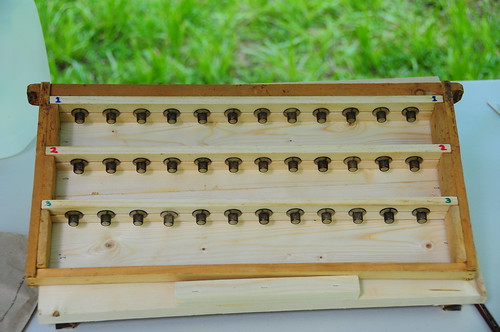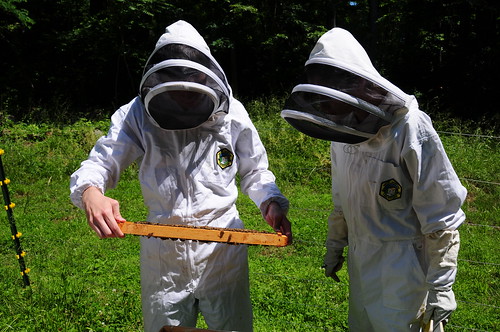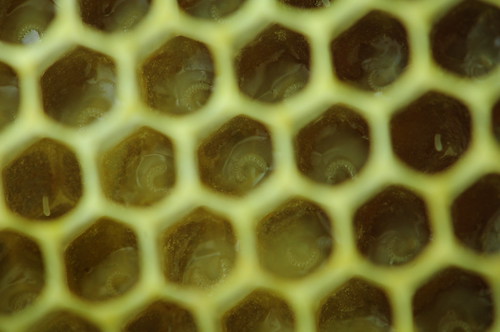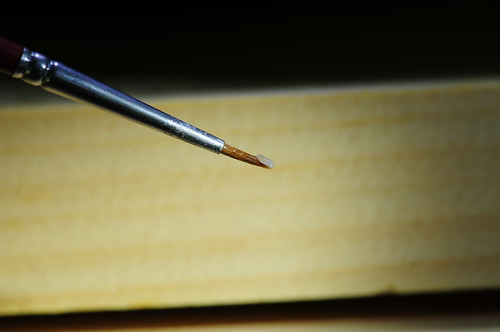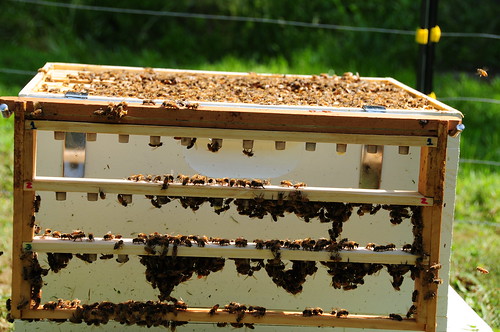In Search of the Perfect Queen

This spring, Mason’s Honey Bee Initiative successfully reared 12 new queen bees as part of an undergraduate course, NCLC 398, In Search of the Perfect Queen. The process was directed by NCC faculty member German Perilla, but much of the hands-on work was completed by Mason students enrolled in this upper level course that required students to work directly with the bee hives in Mason’s apiaries.
Perilla hoped to raise new queens to improve the overall health and resiliency of the existing hives and also to start new hives for additional research and teaching opportunities. His students hoped to learn more about bee propagation, behavior and care. All these desires were satisfied.
At Mason’s apiary, Perilla and his students used a process called grafting to remove select larvae from their worker cells and place them into artificial queen cells primed with royal jelly (a substance secreted by worker bees) and water. Once in the isolated queen cells, the larvae were placed into a so-called “orphan hive” that had no queen bees. Within 24 hours, worker bees in the orphan hive accepted some of the larvae and began feeding those select larvae royal jelly.
The team grafted a total of 36 larvae, of which 12 queen bees emerged. These new queens have each been placed in their own new colony. Overall, Perilla is extremely pleased with the results, “This is a very good outcome. We do this to increase the health and well-being of our colonies. We hope to create queens with ideal characteristics. We want them to be gentle, healthy, good producers, hygienic and able to survive winter.”
This summer, Perilla will travel to Peru, Colombia and El Salvador to train local residents in the art of beekeeping. In many regions, beekeeping can play an important role for the local economy and environmental conservation. Those interested can follow Perilla’s trip on the GMU Honey Bee Initiative website, bees.gmu.edu.
